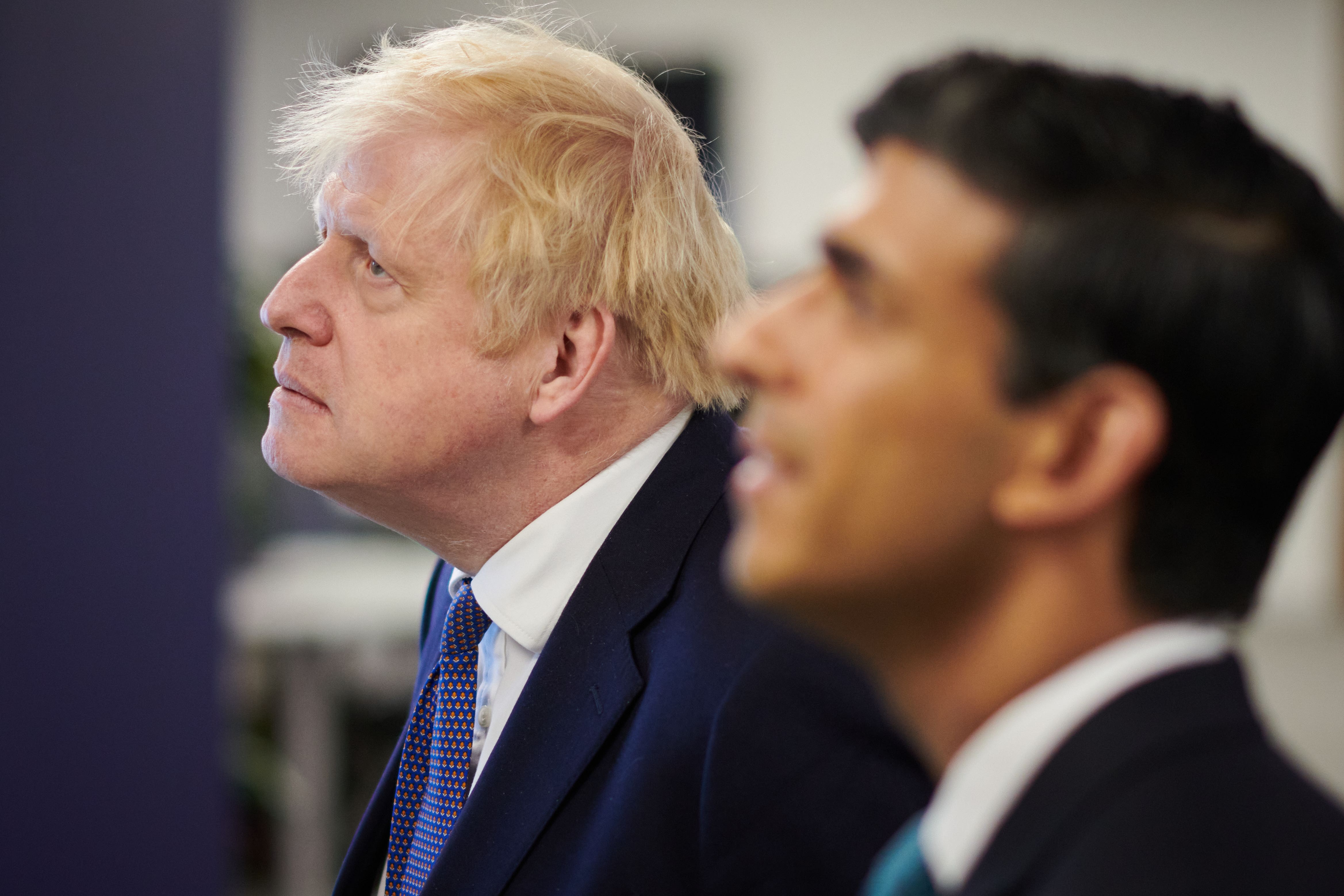Tactical voting could see ‘terrible’ local election loss for Rishi Sunak, say polling experts
Exclusive: ‘Sophisticated’ electorate spells trouble for PM – with Tories forecast to lose more than 1,000 seats and Boris Johnson waiting in the wings

Your support helps us to tell the story
From reproductive rights to climate change to Big Tech, The Independent is on the ground when the story is developing. Whether it's investigating the financials of Elon Musk's pro-Trump PAC or producing our latest documentary, 'The A Word', which shines a light on the American women fighting for reproductive rights, we know how important it is to parse out the facts from the messaging.
At such a critical moment in US history, we need reporters on the ground. Your donation allows us to keep sending journalists to speak to both sides of the story.
The Independent is trusted by Americans across the entire political spectrum. And unlike many other quality news outlets, we choose not to lock Americans out of our reporting and analysis with paywalls. We believe quality journalism should be available to everyone, paid for by those who can afford it.
Your support makes all the difference.Anti-Tory tactical voting could see heavy local election losses for Rishi Sunak’s party and lead to a Labour majority at the next general election, top polling gurus have said.
Leading elections experts said the electorate had become increasingly “sophisticated” in switching between Labour or the Liberal Democrats, depending on which party has the best chance of defeating local Tory candidates.
Professor Sir John Curtice told The Independent that the tactical voting evident in last year’s local elections and recent by-elections was a worrying sign for Mr Sunak’s hopes of limiting council losses across England on 4 May.
“It’s resonant with what happened at local elections between 1992 and 1997 when the Tories were so disliked and in deep trouble,” he said. “Tactical voting happens when people dislike the government so much they will take whatever stick is available to beat it with.”
He added: “The crucial question is how big a factor that tactical voting is. If it happens [in a big way], then the Tory party could lose well over 1,000 seats in May.”
“Tactical voting would reduce the overall national vote share Labour would need in order to win a majority,” the expert added. “It could be the difference between whether Labour gets an overall majority in Commons.”
Elections experts Colin Rallings and Michael Thrasher have said current polling could see Tory seat losses of around 1,000 when English voters go to the polls in just over two weeks – with Labour set to make around 700 gains.
Chris Hopkins, director of polling company Savanta, said he agreed with Prof Curtice that the Conservative losses could even exceed 1,000 seats – but said the crucial sign of real progress for Labour will be a national vote share 10 points ahead of the Tories.
The pollster said the recent sign of some 2019 Tory voters “going home” to the party means Mr Sunak could feel slightly more confident about the May elections than a couple of months ago – but warned that No 10 should still brace itself for heavy losses.
“Labour would only be pleased with a national vote share lead of at least 10 points,” said Mr Hopkins. “If they get to up 13 or 14 points that would be great for Starmer and would be terrible for the Tories.”
The Savanta director also said anti-Tory tactical voting could come into play. “There are signs voters are growing more sophisticated. I’m not sure how big tactical voting will be at local elections – council seats may change hands because of it, but perhaps not overall councils.”

Prof Curtice also said Sir Keir would be looking for a “double-digit” lead over the Tories when it comes to vote share next month – forecasting that Labour would gain most ground in urban areas. “Labour should be putting in their best performance at a local election since they were in government,” he said.
Despite predictions of a bad night for Mr Sunak’s party on 4 May, several recent polls have seen Labour’s poll lead cut back to levels seen before Liz Truss’s disastrous premiership, raising Tory hopes they could be back in hung parliament territory.
Some Labour insiders had been hoping to win close to 2,000 council seats. But recent poll dips have dampened expectations that Sir Keir’s party can inflict an embarrassingly huge defeat on the PM.
Expectation management is already underway on both sides, with Boris Johnson’s allies waiting to stir up discontent in the party if the local elections are seen to be a disaster for Mr Sunak.
Tory polling guru Lord Hayward said there were signs of a steady Tory recovery, arguing that Mr Sunak had inspired some middle-class voters to return to the party in “blue wall” territory in the south of England and other affluent areas.
“Recent polling have given Tories some cause for optimism, but we’re still talking about a large Labour lead,” the influential Tory peer said. “The progress won’t be enough to avoid marked Conservative losses in May.”

On anti-Tory tactical voting, Lord Hayward added: “There’s no question tactical voting will apply, but it will be the Lib Dems that are the big beneficiaries. Historically it’s been more difficult for Labour to squeeze the Lib Dem vote.”
The centre-left think tank Compass has organised a tactical voting campaign to combat the “progressive tragedy” – Tory candidates winning despite the combined centre and left-wing vote being higher than votes for right-wing parties.
Ahead of the general election, the Compass “Win as One” campaign has identified 43 marginals where Lib Dem backers may consider switching to Labour, and 17 key seats where Labour voters should back the Lib Dems.
Labour and Lib Dem sources have played down the idea of any kind of electoral pact ahead of the general election expected in 2024. But recent by-elections have seen parties informally backing off from each others’ key target seats in a bid to manage their resources.
Most councils in England last ran local elections in 2019, so a total of 8,000 seats are up for grabs on 4 May. There are no elections in Scotland, Wales or London, while Northern Ireland local elections take place on 18 May.




Join our commenting forum
Join thought-provoking conversations, follow other Independent readers and see their replies
Comments